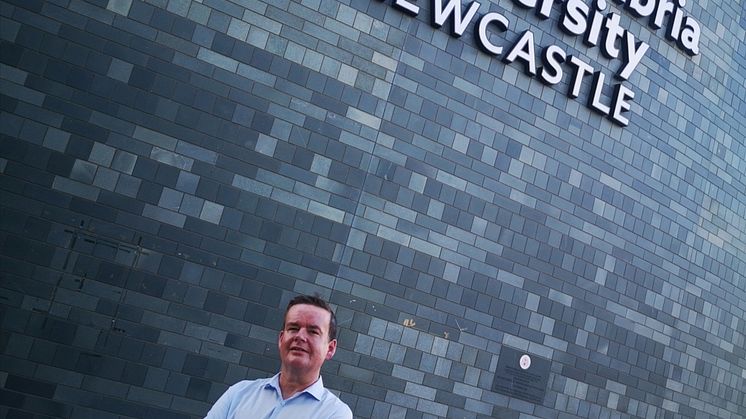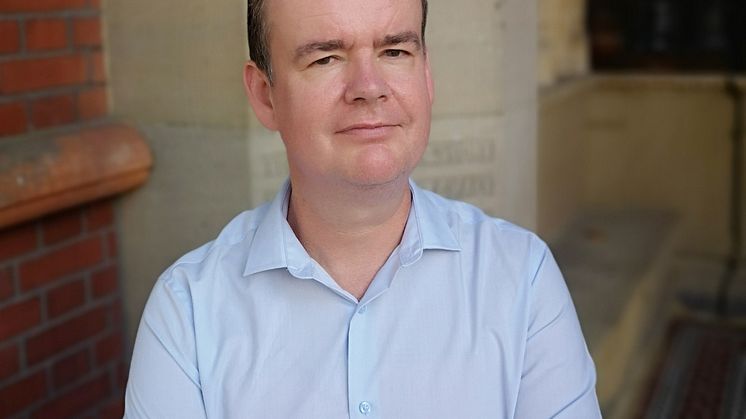
Press release -
Lockdown isolation disrupted thoughts about the future and others
People spent less time planning for the future and thinking of others during the first UK lockdown, a new study suggests.
Co-authored by Professor Leigh Riby from the Department of Psychology at Northumbria University, the study analysed changes to everyday thought patterns and demonstrates the impact of prolonged social isolation and changes to work opportunities experienced during the height of the COVID-19 pandemic.
The findings have been published in the latest issue of PNAS, the official journal of the National Academy of Sciences.
Researchers texted participants at random times during their day over the course of one week, asking them for details of what they had been thinking about and what they were doing during the unprecedented time.
The information was then compared with thought patterns from a comparable dataset gathered before the lockdown.
Professor Riby, one of the fundholders for the research, which was conducted in collaboration with the University of York, Queen's University, Canada and the University of Essex, said: “The UK’s first national lockdown resulted in alarming impacts on anxiety, depression and ongoing thought processes.
“We know from previous work that positive future thinking, as well as social thinking, are essential to our psychological wellbeing.
“These innovative findings have started to unravel precisely why this is the case and emphasised the importance of minimising changes to everyday routines. Socialisation is essential as we spend so much time thinking of others.
“Similarly, and particularly relevant as people return to normal working arrangements, goal-directed future thinking was diminished.”
As well as changes to social and future thinking, they also found that adults aged 55-78 years experienced more detailed thoughts during their virtual social interactions compared to in-person ones during the lockdown. This increase in detailed thoughts for older adults during virtual interactions may be linked to the phenomenon of ‘Zoom fatigue’.
Researchers said the findings highlighted the important role our social and working lives play in shaping what we think, and how we think, as we go about our everyday lives.
Lead author Brontë McKeown, from the University of York, said: “Normally, people spend a lot of time thinking about other people and planning for the future in their daily lives. We found that both of these thought patterns were disrupted during lockdown.
“We found that future thinking was reduced overall during lockdown, and only seemed to occur at pre-lockdown levels when people were actively engaged in work.
“We know that future thinking is generally associated with positive mental health outcomes so the fact that this type of thinking was reduced in lockdown may help explain some of the negative emotional changes documented during this time.
“People were also alone a lot more during lockdown. And when they were alone, they tended to think about other people less than before lockdown. But on the rare occasions when people were able to interact with others, they thought more about other people than before lockdown.
“These findings suggest that how much we think about other people depends on how much we interact with them: we are social thinkers because we live in a social world. During prolonged periods of physical isolation, we reduce the amount of time we think about others and when we do get to engage in social interaction, that promotes a bigger increase in our social thoughts.”
The paper called, “The impact of social isolation and changes in work patterns on ongoing thought during the first COVID-19 lockdown in the United Kingdom” is published in the prestigious peer-reviewed scientific journal, Proceedings of the National Academy of Sciences (PNAS).
Professor Riby is part of an international collaboration, which includes researchers from Queens University, Canada and York University, examining positive and negative impacts on thought patterns across the lifespan. He also contributes to refining the theoretical understanding of how the internal and external world interacts, focusing on psychological wellbeing.
Northumbria University’s Department of Psychology has a well-established and thriving community of internationally recognised academics producing world-class research in areas including neuroscience, language comprehension, working memory, sleep, health and wellbeing, digital communication and nutritional interventions.
Topics
Categories
Northumbria is a research-rich, business-focused, professional university with a global reputation for academic excellence. Find out more about us at www.northumbria.ac.uk --- Please contact our Media and Communications team at media.communications@northumbria.ac.uk with any media enquiries or interview requests ---











